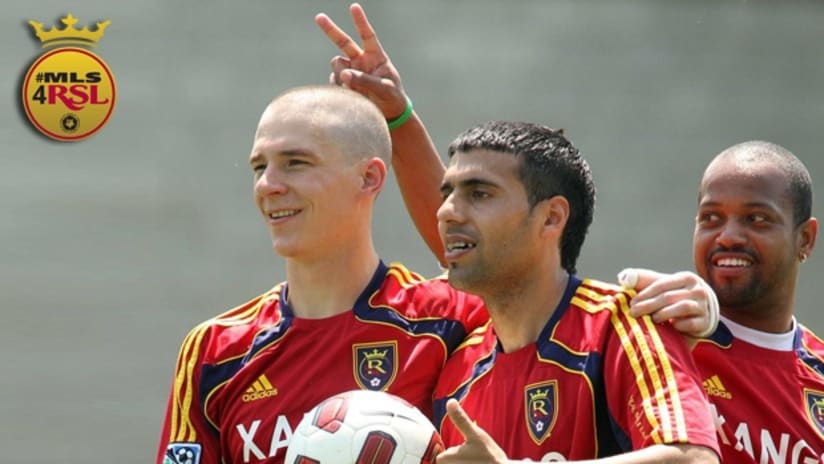NEW YORK – For all intents and purposes, it doesn’t get any bigger than this for Real Salt Lake. Or for MLS, for that matter.
The CONCACAF Champions League is the apex of professional soccer in our region, the ultimate goal for any club chasing its broader ambitions. And with MLS enjoying a period of growth and bristling confidence, it’s time for one of the league’s clubs to make a larger statement. For everyone’s sake.
As RSL prepare to take on Monterrey in the final series of the CONCACAF Champions League, beginning with the first leg on Wednesday night (10 pm ET, FOX Soccer, TeleFutura), they must know they are not only playing for themselves. They are also playing for all MLS fans in the US and Canada.
Because if they win, they will earn MLS’ first-ever berth in the FIFA Club World Cup, which is scheduled to take place December 8-18 in Japan. (There is talk that it could be relocated due to the tsunami. Stay tuned.) And it is at the CWC, under the ever-critical, ever-dismissive eyes of the soccer world, that RSL will have the perfect platform to prove that an MLS team can indeed compete with the star-riddled powerhouses of Europe and South America.
Quick primer on the CWC: It is a seven-team tournament that brings together the champions of the six FIFA confederations and the champion of the host nation’s top division, in this case the J. League. The European and South American champions earn automatic berths to the semifinals.
Since 2000, the CWC has been staged seven times, emerging from the old Intercontinental Cup, a yearly meeting of the European and South American champions, which ran from 1960 to 2004. All seven past winners have come from Europe or South America, including such giants as FC Barcelona, Manchester United and São Paulo.
[inline_node:334246]Last year, Italian club Inter Milan won the tournament, beating Congolese side TP Mazembe, 3-0, in the final. Inter were expected to win the title, but Mazembe were the darlings of the tournament. The first club from outside Europe or South America to reach the final, they earned the world’s respect with their exciting, attacking style.
Therein lies the aspirational storyline and the underlying motivation for RSL: Reaching the Club World Cup would give the club the chance to refute many of the MLS naysayers in Europe and South America (and even in the league’s own backyard).
RSL might be the perfect team to represent MLS at this stage. Carefully constructed with a mix of talent from both North and South America, Jason Kreis’ team plays the game “the right way.” They like to possess the ball. They can strike quickly and from many angles. They can adapt tactically when necessary and, in the CCL semifinal second leg against Saprissa, proved they have the mettle to handle tough environments.
In other words, they are built to succeed in international competitions.
Contrary to popular belief, they aren’t the first MLS team to reach this stage. Both D.C. United and the LA Galaxy not only reached the final of the CONCACAF championship, in 1998 and 2000, respectively, but also won the title. (Their former players will gladly remind you of that fact. As they should.)
Unfortunately, in 1998, the Club World Cup didn’t exist, so Bruce Arena’s brilliant United side never got a chance to put the screws to the world’s other top teams. The Galaxy’s opportunity was undone by the financial collapse of one of FIFA’s sponsors, which led to the cancelation of the CWC in 2001.
All of which helps explain the importance of RSL’s run to the CCL finals. They are not only playing for the badge on the front of their jersey or even the supporters in the stands at Rio Tinto Stadium. For the next week, they are playing for all of MLS. And all of MLS should be rooting for RSL.













